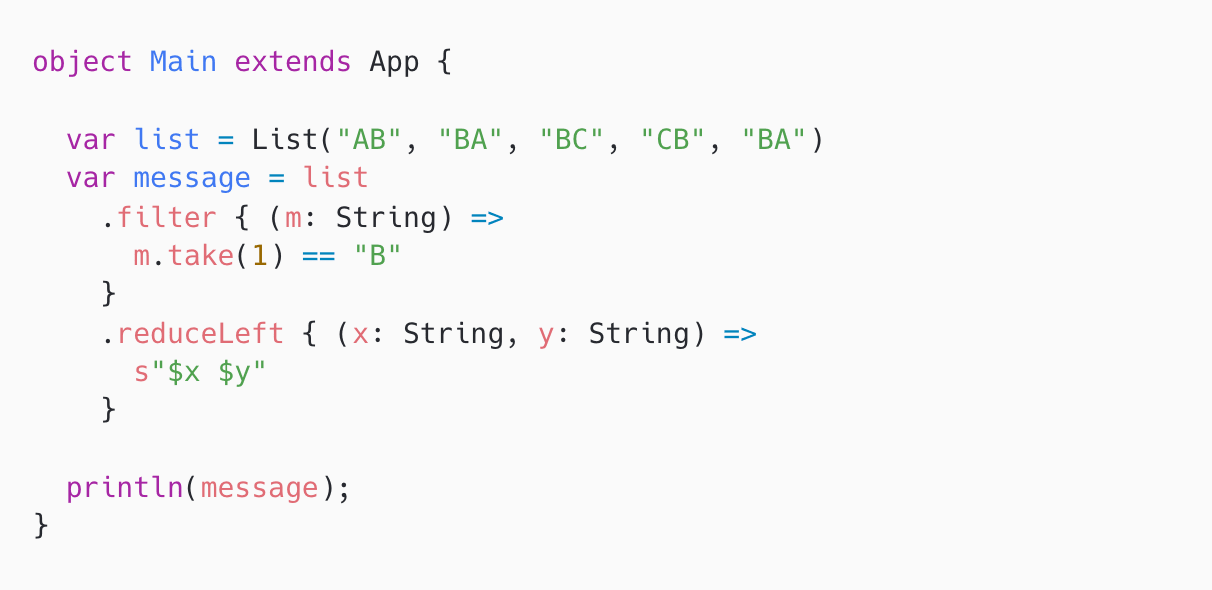Basic syntax and semantics: Scala's syntax combines object-oriented and functional programming paradigms. It includes features like type inference, immutability, and pattern matching. Understanding these fundamentals is crucial for writing efficient and idiomatic Scala code.
Control structures and loops: Scala offers traditional control structures like if-else, while, and for loops. It also introduces powerful constructs such as for comprehensions and match expressions. Mastery of these elements enables developers to write concise and expressive code.
Collections and data structures: Scala provides a rich set of immutable and mutable collections. These include Lists, Sets, Maps, and Vectors, each with specific performance characteristics. Proficiency in choosing and manipulating appropriate data structures is essential for writing performant Scala applications.
Functions and methods: Functions are first-class citizens in Scala, supporting higher-order functions and closures. Methods are defined within classes and objects. This skill assessment evaluates the ability to create and use functions effectively, including currying and partial application.
Error handling and exceptions: Scala offers several mechanisms for handling errors, including try-catch blocks and the Either type. Understanding these concepts is vital for writing robust and fault-tolerant code. This skill measures the ability to implement proper error handling strategies.
Object-oriented programming: Scala supports OOP concepts like classes, traits, and inheritance. It introduces innovations like case classes and singleton objects. This skill evaluates the understanding of OOP principles and their implementation in Scala's unique ecosystem.
Pattern matching: Pattern matching is a powerful feature in Scala for decomposing data structures. It goes beyond simple switch statements, allowing complex matching on types, structures, and values. This skill assesses the ability to leverage pattern matching for concise and readable code.
Recursion: Recursion is a fundamental concept in functional programming. Scala optimizes tail-recursive functions, making them as efficient as loops. This skill measures the ability to implement and optimize recursive algorithms.
Functional programming principles: Scala embraces functional programming concepts like immutability, pure functions, and higher-order functions. Understanding these principles is crucial for writing clean, testable, and parallelizable code. This skill assesses the ability to apply functional programming paradigms effectively.
File I/O operations: Scala provides various libraries for file operations, including scala.io and java.nio. This skill evaluates the ability to read from and write to files efficiently, handle different file formats, and manage resources properly.
Basic algorithms: Implementation of fundamental algorithms in Scala tests problem-solving skills and language proficiency. This includes sorting, searching, and graph algorithms. The assessment focuses on the ability to translate algorithmic concepts into efficient Scala code.
Unit testing in Scala: Scala offers testing frameworks like ScalaTest and specs2. This skill measures the ability to write effective unit tests, use assertions, and implement test-driven development practices. Understanding testing principles ensures code reliability and maintainability.























































